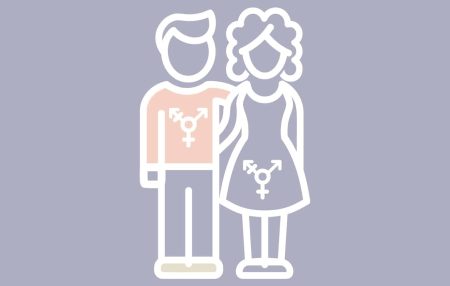3 February 2022
The recent case of Re X, Y and Z (Children: Parental Orders: Time Limit) [2022] EWHC198 (Fam) highlights the very real legal issues and problems that can arise when intended parents enter into international surrogacy arrangements. In Re X, the intended parents experienced unforeseen difficulties with their three US surrogate born children’s legal parentage, citizenship and residence when they encountered a different system of law in Denmark where they were living. They also had to navigate complex legal issues whilst applying for parental orders in the English Family Court to resolve their children’s legal parentage and legally secure their children’s care arrangements upon relocating to the UK.
Background
In Re X, the English Family Court was concerned with X and Y who were twins aged four and their younger sister aged two. The children had been born in the USA following surrogacy arrangements in Oregon and California involving two married surrogates. Their intended parents were a married male couple who resided in Denmark until the end of October 2021 when they relocated to the UK as a result of homophobia and unforeseen legal difficulties that they encountered as a family in Denmark.
The intended parents had carefully chosen to build their family through international surrogacy in the US having explored their options in Denmark and established that they would be ineligible to adopt on the grounds of age (the older of them both being a Danish citizen in his 50’s whilst the younger was a British citizen in his 40’s). They therefore proceeded to have twins through surrogacy in the US state of Oregon in 2017 and a third child through surrogacy in California in 2019 using the sperm of the British intended father and donor eggs.
Following their return to Denmark with the twins in 2017, they were able to successfully register their births with the Danish authorities (believing this to be lawful), obtain Danish passports and confirm the twins’ Danish citizenship. It therefore come as a huge shock when they encountered serious legal difficulties whilst trying to register their youngest daughter’s birth in Denmark in 2019. They were advised that the twins had been registered in error and it was not possible to confer Danish citizenship and parentage upon their children as they were born through surrogacy. They discovered that under Danish law, the biological father is the legal parent along with the surrogate mother, meaning the other intended parent had no legal parental status in Denmark. They were told that they could not register their youngest daughter in Denmark. Their situation worsened when the Danish authorities started an investigation into their family, rescinded the twins’ Danish citizenship and passports and set up a meeting in December 2020 to discuss deporting the children from Denmark.
The intended parents then attended a meeting with the Danish authorities on 16 December 2020 where their children’s deportation was put on hold for 90 days pending a decision. The intended parents had applied for British passports for the children but these were initially refused. Eventually with legal assistance the children were registered as British citizens and acquired permanent rights of residence in Denmark just in time before the UK left the European Union on 31 December 2020. The British intended parent and the three children then had to renew their permanent rights of residence in Denmark post Brexit. The British intended father’s residence application was granted four months later whilst the children’s rights of residence in Denmark were not confirmed for a further nine months pending a determination by the Danish Family Court.
It was not until the intended parents experienced legal difficulties with the children’s legal parentage, citizenship and residence in Denmark that they became aware of the existence of parental orders in the UK. Up until then, they had understood that their legal parentage in the US would be recognised in Denmark and elsewhere in the world. Upon learning of parental orders in the UK they applied for these for all three children. There followed complex legal proceedings in the English Family Court because they had applied outside of the legal six-month time limit following their children’s birth prescribed under section 54 Human Fertilisation and Embryology Act 2008. Furthermore, their case required careful navigation of pending criminal proceedings for assault involving one of the intended parents who had been the victim of a homophobic assault. Moreover, the first US surrogacy agency that they had used had ceased operating following embezzlement by a staff member and this made it impossible for the intended parents to obtain accurate records of all the surrogacy payments they had made in respect of the twins. Ultimately, the English High Court Judge granted parental orders for all three children in respect of the intended parents. The Judge exercised discretion to extend the six-month legal deadline for issuing parental order applications post birth following careful assessment and on a fact specific basis. The Judge did so as this was found to be in the children’s best interests to resolve their legal parentage and because they needed legally secure arrangements for their care in the UK, making clear that this had been possible because the intended parents had been found to have acted with integrity throughout the surrogacy process. The Judge also accepted submissions that the history of registration and citizenship issues which arose in Denmark starkly illustrated how vulnerable the children were if parental orders were not made that had legal force in the UK.
Louisa Ghevaert Associates successfully obtained parental orders for the intended parents in Re X, Y and Z (Children: Parental Orders: Time Limit) [2022] EWHC 198 (Fam).
Specialist surrogacy law advice and legal representation




